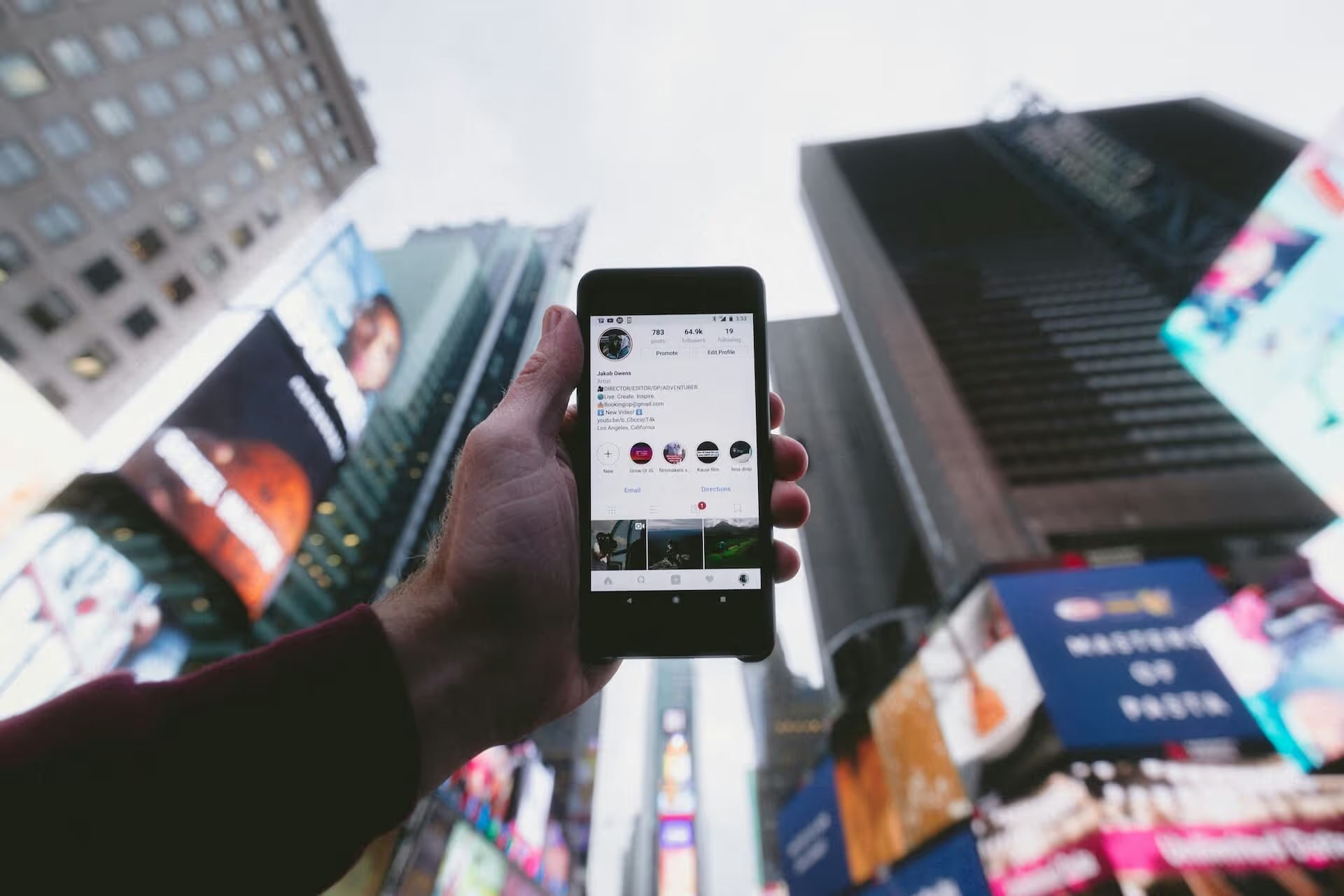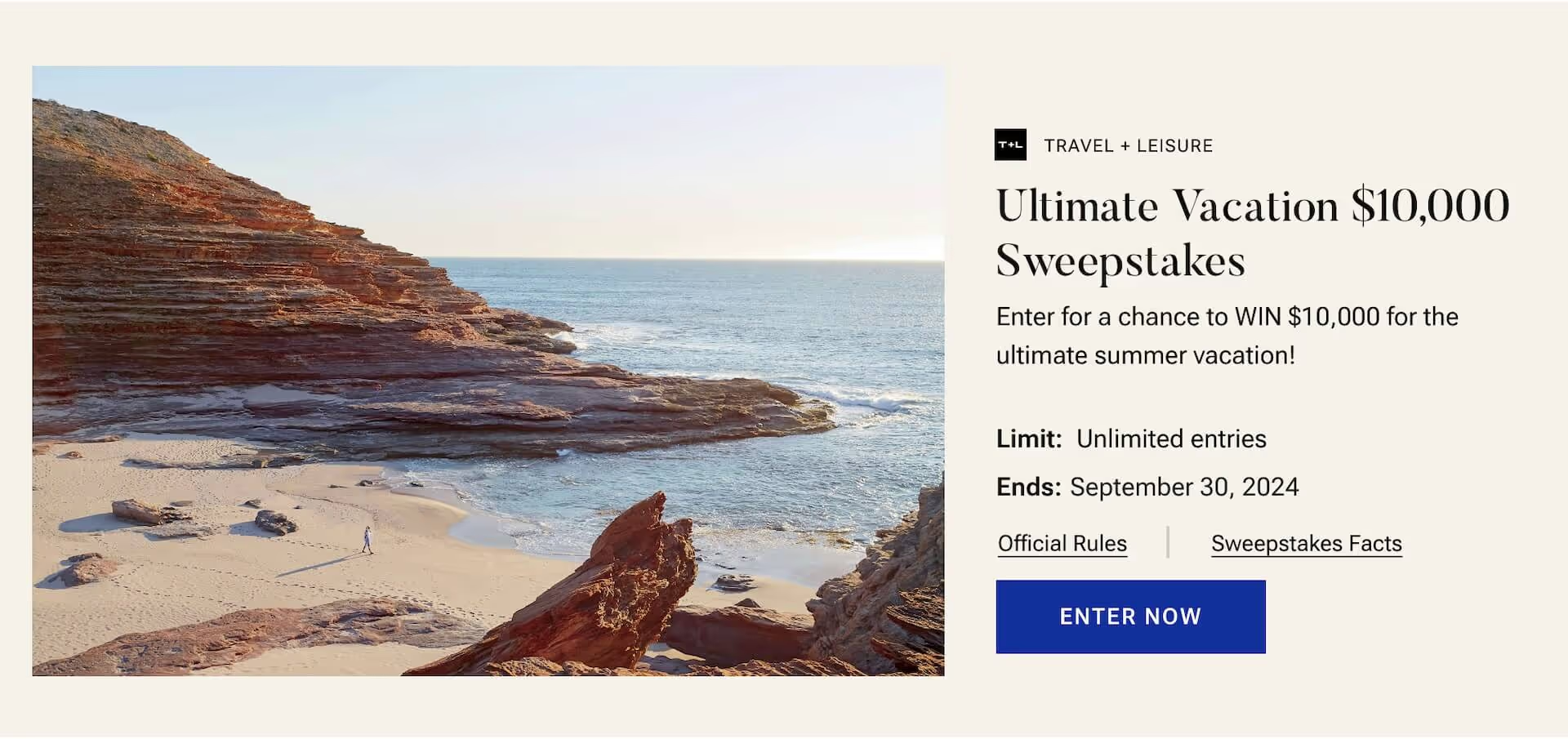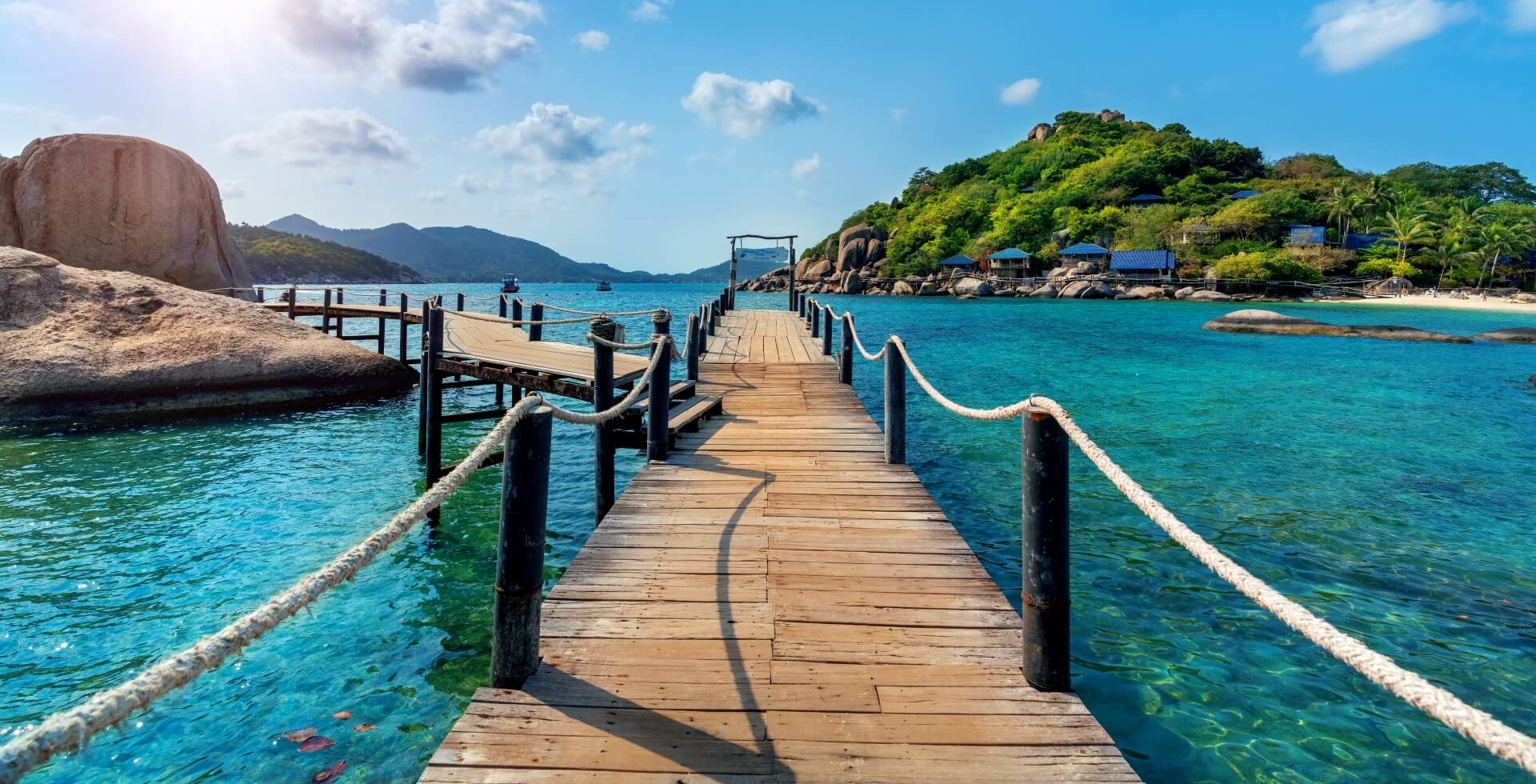As a business owner in the travel industry, you know it is a competitive but rewarding space. Knowing how to promote your travel business effectively is crucial for success. But in this competitive environment, how do you stand out from the crowd?
This guide will provide you with a comprehensive plan for your travel business’s marketing. From creative options to practical advice, you’ll be able to find opportunities for growth and help your travel business succeed.
Creative ways to promote your travel business
Learning how to promote your travel business requires a blend of creativity, strategic planning and consistent effort.
Design a website
A professional, visually appealing and easy-to-navigate website is the cornerstone of your travel business’s online presence. Your website should showcase your services, highlight unique travel packages and provide easy ways to get in touch with you.
You can include customer testimonials and high-quality images of your offerings to enhance the user experience. A well-designed website not only attracts visitors but should also convert them into clients.
One of the most important aspects of your website is the user experience. Make sure it is fast to load, the links all work and it is not overly cluttered.
Also ensure your website is mobile-friendly, as many potential clients may browse on their phones or tablets. You can integrate a blog or news section to keep visitors engaged with fresh content, including travel tips, destination highlights and personal travel stories from satisfied clients.

Invest in search engine optimisation
Once you have a website, you need to drive people to visit it. Make sure your website ranks high in search engine result pages by implementing search engine optimisation (SEO). By optimising your website for relevant keywords like "solo female hiking trips" and "visas for India", you can attract more organic traffic.
Your SEO strategy should include both on-page and off-page factors, like keyword optimisation, meta tags and descriptions, good page titles and headings, quality backlinks and local SEO to improve your search engine rankings.
You can use tools like Google Analytics and Google Search Console to track your SEO performance and make necessary adjustments.
Create quality content in your blog
Regularly updating your blog with high-quality, informative, and engaging content can drive traffic to your website. You can use your blog to establish yourself as a trusted authority in the industry.
Offer insightful travel tips, destination guides and inspiring travel stories. Regularly updated and informative content keeps your audience engaged and drives organic traffic to your website.
Incorporate multimedia elements such as videos, infographics and podcasts to cater to different audience preferences and generate engagement. You can also collaborate with guest bloggers and influencers to bring fresh perspectives and reach a wider audience.
Leverage social media
Knowing how to promote your travel business on social media is one of the keys to a successful travel business. Platforms like Facebook, Instagram, Twitter and Pinterest offer unique ways to connect with potential clients. Travel aimed at business people might find the right audience on LinkedIn.
You can use social media to highlight your in-depth knowledge of the industry as well as a way to engage with your potential clients through comments, direct messages and interactive posts.
Social media advertising can also be a cost-effective way to reach a targeted audience. The fact that social media updates in real-time means you can interact with your audience directly, showing them up-to-date information. Host live Q&A sessions, share user-generated content and run social media contests to increase engagement and brand visibility.

Advertise on Google
Google Ads can significantly boost your visibility and attract more clients. By targeting specific keywords and demographics, you can make sure your ads reach the right audience. Google Ads allows you to create various types of ads, including search ads, display ads, and video ads, providing multiple ways to promote your travel business.
You can also use location-based targeting to connect with potential clients actively searching for travel in your niche or specific destinations.
When running any kind of ad campaign, it is helpful to actively monitor the campaign to optimise it for the best performance and return on investment.
Consider using retargeting strategies to reach visitors who have previously visited your website but did not convert, reminding them of your services and offerings.
Build your brand
Craft a distinct brand identity that reflects your agency's values and unique selling proposition (USP). A strong, recognisable and trustworthy brand is essential for long-term success.
Some tips for building your brand include:
- Stay consistent across all platforms including your website, social media, corporate communication and other promotional materials
- Research your competitors to see how you can differentiate yourself from them
- Keep your USPs at the forefront of your brand identity. This should include a memorable logo and tagline that encapsulates your brand’s essence and makes it easily recognisable.
- Use storytelling that connects emotionally with potential clients and builds a loyal customer base.
Attend travel events
Industry conferences, trade shows, and tourism expos offer valuable opportunities to network with travel partners, connect with potential clients, and stay informed about the latest travel trends.
Use these opportunities to showcase your services, distribute promotional materials and learn about the latest industry trends. You could also choose to participate in industry events to improve your credibility and visibility. Look into becoming a guest speaker, try hosting a workshop or set up stalls at the next big trade event.
Or, you could consider sponsoring events or partnering with other brands to increase your visibility and reach a broader audience.

Promote referral programs
Referral programs are an effective way to increase your client base. One way to encourage your satisfied customers to refer their friends and family is by offering incentives such as discounts, free services or special gifts.
A well-structured referral program not only attracts new clients but also fosters loyalty among existing ones. Make it easy for customers to refer others through email, social media, and your website. Most importantly, follow through on your promotions.
You can track the performance of your referral program using CRM software to ensure it is providing you with the desired results.
Influencer marketing
Influencers can be a great tool to promote your travel business as they have a large reach and an audience that is full of your target market.
You can work with influencers by offering them complimentary trips, exclusive experiences or financial compensation in exchange for promoting your services or products. This type of marketing can help create authentic, first-person content and build trust with potential clients.
Another option is to collaborate with micro-influencers who have smaller but highly engaged audiences for authentic and cost-effective promotion.
Attract customer reviews
Customer reviews are a key way your potential clients will research what your travel business is like. Good reviews build crediblity and trust. Ask your clients to leave reviews on platforms like Google, TripAdvisor and social media platforms.
It is also helpful for potential clients that they see you engaging with current customers, so you should make sure you are replying to reviews in good time to show that you value customer feedback.
One way to do this is to create follow-up email campaigns requesting reviews from recent clients and offer small incentives for their feedback.
Giveaways
Running giveaways and competitions is a fun way to engage with your audience and promote your travel business. Some travel agency promotion ideas include prizes such as free trips, travel accessories or gift vouchers.
Use your marketing channels to promote your giveaways. This includes your website, social media and email lists. Make sure the rules are clear and that it is quick and easy to enter.
Once the giveaway is over, don’t lose momentum. Keep the leads you gained engaged by promoting upcoming deals and new products or services.
Another step is to analyse the performance of your giveaways to understand what types of prizes and promotions resonate best with your audience. You can then use this data to improve future campaigns.

Tips to market your travel agency
Travel marketing is all about capturing imaginations. Think outside the box with your marketing efforts.
Define your goals
Start by finding clear, measurable goals to market your travel company. This could be how to promote your travel business, increase brand awareness, generate leads, boost bookings or improve customer loyalty. Having specific goals helps you create focused strategies and measure your success.
Make sure your goals align with your overall business vision and mission. This will help you maintain a consistent approach in all your marketing work.
Review and adjust your goals periodically to ensure they remain relevant and achievable as your business evolves.
Do market research
Gain deeper understanding of the market by conducting thorough market research. This should include identifying your competitors, finding what your customers want and learning their pain points.
This research will help provide valuable insights into consumer behaviour, preferences and trends. You can use this information to create tailored marketing strategies for a travel company that meet the needs and wants of your potential clients.
Use tools like surveys, focus groups and online forums to gather comprehensive data about your target market.
Marketing segmentation
Your potential customers and travellers have diverse and unique needs and desires. Marketing segmentation involves dividing your target market into distinct groups based on specific criteria such as demographics, interests and behaviour.
By understanding the unique needs of each segment, you can create personalised ways to market your travel company that resonate with different audience groups. Segmentation helps you allocate your resources more efficiently and achieve better results.
One way you can use this information is to implement dynamic content in your email campaigns that changes based on the recipient's segment to increase engagement and conversions.
Develop customer personas
Customer personas are fictional representations of your ideal clients based on real data about your existing customers and market research. Creating detailed personas helps you understand your clients' needs, preferences and pain points.
Use these personas to guide your marketing strategies for travel companies, ensuring your messaging and offerings are relevant and appealing to your target audience. Update your personas regularly as you gather more data and insights from your marketing efforts and customer interactions.

Find your niche
Standing out is key in the competitive travel industry. Identifying and focusing on a niche market can set your travel business apart from competitors. Consider specialising in a specific niche, like luxury travel, business travel, adventure travel or family vacations.
A niche market strategy helps you attract a dedicated customer base and stand out in a crowded market.
Develop your marketing strategies
Once you’ve done the work identifying your goals, target audience and niche, now is the time to develop a comprehensive marketing strategy.
Using your customer personas and knowledge of the industry, your marketing strategy may include content marketing, social media campaigns, email marketing, paid advertising and partnerships. Each strategy should be tailored to your audience and designed to achieve specific objectives.
A marketing strategy is not a one-size-fits-all. It should be a multi-faceted approach with measurable goals and the ability to change and adapt as needed. But, you also need to integrate cross-channel marketing efforts to ensure a cohesive and unified message across all platforms.
Monitor
In order to keep track of the success of your marketing strategies, you need to regularly monitor the performance of your campaigns. You can do this using analytic tools and measuring key performance indicators.
Track metrics like website traffic, click-through rate, social media engagement and conversion rates.
Analysing data helps you understand what’s working and what's not, allowing you to make informed adjustments to improve your campaigns for better results. You can do this by establishing a routine for regular performance reviews and make data-driven decisions to optimise your marketing strategies continuously.
Final thoughts
Promoting your travel agency requires a strategic and creative approach. By implementing the diverse strategies outlined in this guide, you can effectively reach your target audience, build brand loyalty and propel your travel agency to new heights.
Remember to define your goals, conduct market research, and develop targeted marketing strategies to ensure your efforts are successful. With the right approach, you can build a strong, recognisable brand and achieve long-term growth in the competitive travel industry.
By mastering how to increase your travel business through innovative and tested methods, you ensure that your travel company not only survives but thrives.
Get started on promoting your travel business today
At Boost Brands, our travel marketing experts can help you develop a strategy to attract and convert clients for your business.




